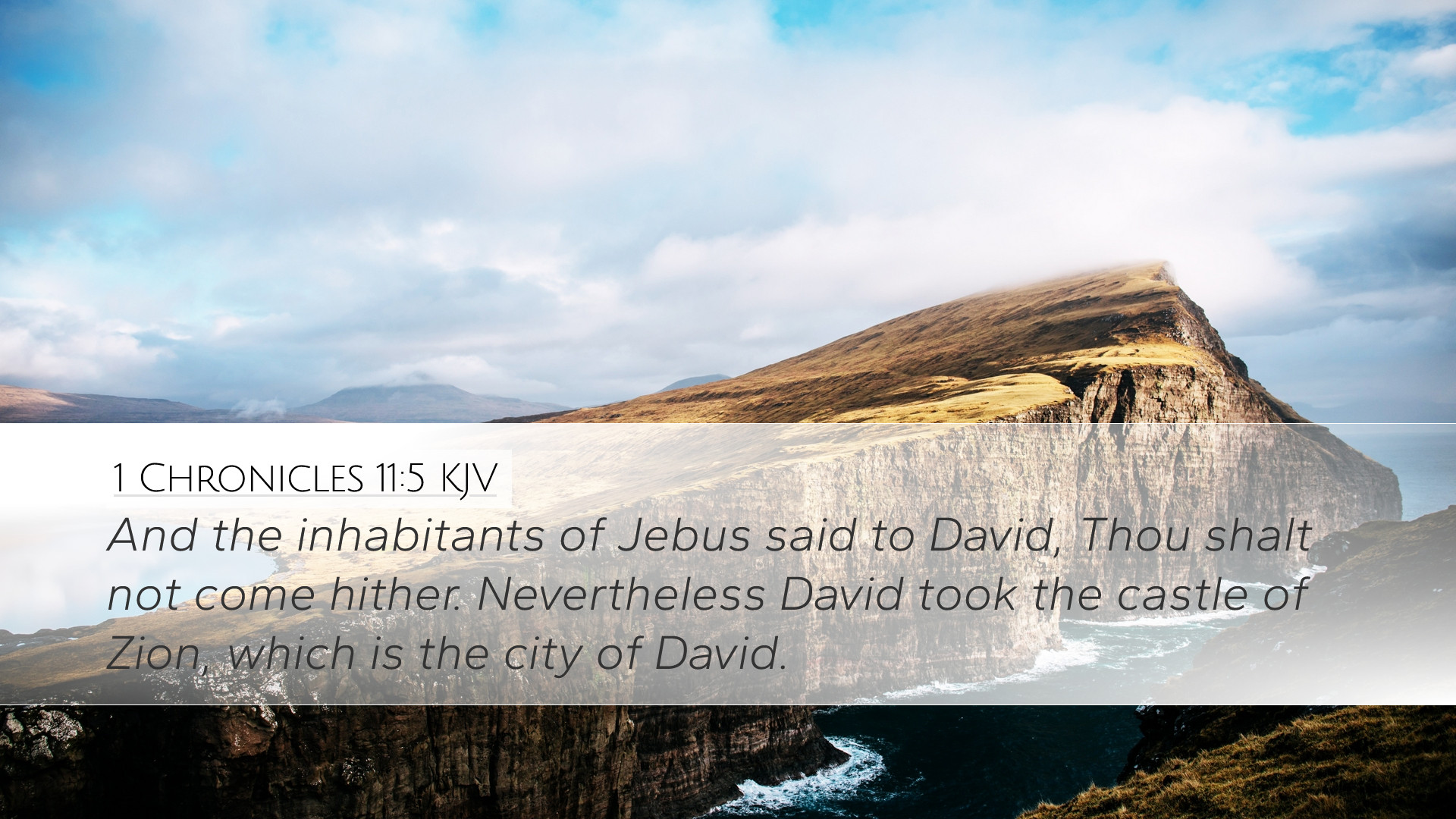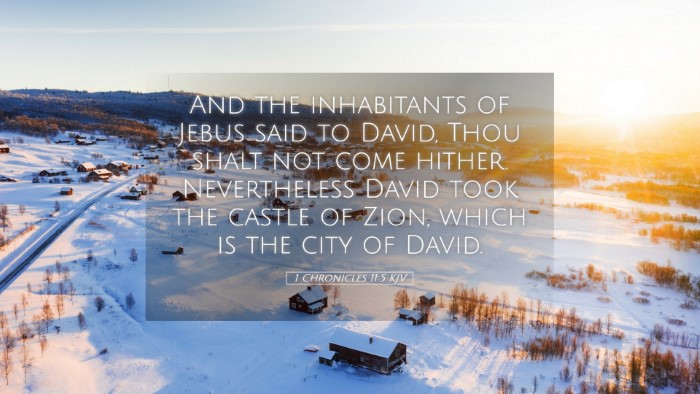Commentary on 1 Chronicles 11:5
1 Chronicles 11:5 (ESV): "The inhabitants of Jebus said to David, 'You will not come in here.' Nevertheless, David took the stronghold of Zion that is, the City of David."
Introduction
This verse marks a significant moment in the transition of leadership and establishment of authority in ancient Israel. David's capture of the stronghold of Zion, or Jebus, is not merely a military achievement but symbolizes the divine favor on David's kingship. This commentary synthesizes insights from esteemed public domain commentaries to highlight the spiritual and historical implications of this text.
Contextual Background
Understanding the historical and geographical context of Jerusalem during David’s reign is crucial. Jebus was a fortified city belonging to the Jebusites, acting as a significant stronghold. The capture represents not only a military conquest but also a theological declaration of God’s commitment to His people through David.
-
Mighty Men of David: David’s rise as a leader came accompanied by a band of followers who recognized God’s anointing. The interest in Zion was not merely political; it was part of God’s plan to establish a holy city.
-
Jebusian Defiance: The Jebusites viewed their stronghold as impregnable, exemplifying the human inclination to resist God’s appointed leaders.
Theological Insights
This verse serves to illustrate several key theological principles relevant for understanding God’s interaction with humanity, particularly through His chosen leaders.
-
Divine Sovereignty: The Jebusites’ belief in their stronghold reflects a common human tendency to underestimate God’s power. David’s success demonstrates that God is sovereign over all earthly powers and strongholds.
-
Faith and Action: David’s determination to seize Zion shows a profound act of faith. It reminds us that faith must be accompanied by action; believers are called to act on the promises of God.
Commentator Insights
Matthew Henry
Henry elaborates on the courage of David amidst opposition, highlighting his strategic prowess in choosing Jerusalem as the political and spiritual capital of Israel. He notes that David’s victory over Jebus was not only due to military force but also a fulfillment of God’s promise to establish His kingdom through David.
Albert Barnes
Barnes emphasizes the significance of David's choice of Zion, describing it as a prophetic act of establishing a place for the Lord. He explains that Zion becomes symbolic of the church and God’s dwelling among His people. The opposition from the Jebusites foreshadows the challenges believers will face in establishing God’s kingdom on earth.
Adam Clarke
Clarke focuses on the geographical and strategic advantages of Zion as a location, illustrating David’s wisdom in his selection. He also reflects on the spiritual implications of taking such a city, linking the stronghold of Zion with the future temple site, highlighting God’s plan for a central place of worship.
Practical Applications
This historical account conveys critical lessons for contemporary faith communities:
-
Facing Opposition: Pastors and leaders today can draw strength from David’s boldness. Opposition is often an indication of the significance of the task God is calling one to undertake.
-
Choosing God’s City: The transition from Jebus to Zion speaks to the transformative power of God. Leaders are encouraged to seek God’s guidance in their decisions, understanding that He can turn what is considered an impossible situation into a testimony of His glory.
Conclusion
1 Chronicles 11:5 encapsulates a turning point in Israel's history, illustrating divine sovereignty, the importance of faith, and the establishment of God’s presence among His people. By reflecting on the insights from notable commentaries, we garner a deeper understanding of the relationship between leadership, faithfulness, and divine purpose. This passage remains an inspiration for today's believers seeking to navigate their spiritual journeys in opposition and uncertainty, with the assurance that God is indeed in control.


